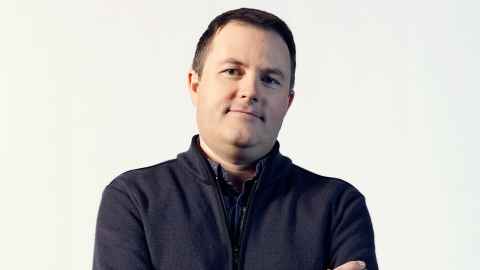Skip flying and walk the walk
6 July 2018
Opinion: Recognising the hypocrisy of scientists' carbon footprint, scientist Shaun Hendy is going by bus, train, foot – anything but by air – in 2018.

When Donald Trump announced that the US would pull out of the Paris Agreement to combat climate change last year, I felt hopeless. Our best hope at keeping global warming under two degrees had been killed by a reality TV star.
A few weeks later, I went to a talk by University of Auckland colleague and psychologist, Professor Quentin Atkinson. He studies how beliefs spread, and he was discussing why people believe things even in the face of contradictory evidence. Quentin made the point that we tend to believe people who are prepared to make sacrifices that demonstrate their conviction. Those who walk the talk are more convincing than those who just talk.
This got me thinking about scientists and climate. Scientists will fly in to tell us that we need to reduce our carbon footprints, even as they catch a plane to their next gig, emitting even more carbon. In fact, the typical scientist has a much bigger carbon footprint than the average person. Traveling to Antarctica for field work or presenting their work at international conferences is an important part of a scientist’s job.
But there is a growing movement in science to reduce the amount of traveling we do. Some scientists, like the Jet Propulsion Laboratory’s Peter Kalmus in the US, have actually stopped flying altogether. I thought I would try something less drastic - not flying for 2018 - hoping that it might be something that other scientists would be willing to do.
I didn’t think it would be easy, but thought it might be manageable if I planned well and was prepared to miss a few opportunities. As Director of a National Centre of Research Excellence, Te Pūnaha Matatini, I work with researchers and organisations around the country. Last year I flew several times a month. This year I have replaced these flights with train or bus trips. On each trip I am staying for longer, replacing a couple of dozen flights with a third as many train trips.
Those of us who live in relatively privileged circumstances, including scientists like me, can and should act. We have the biggest impact and are best equipped to reduce our footprint.
International travel is not as easy to work around. I have been collaborating on a project for nearly 10 years with a team of scientists at the University of Sydney. While we meet regularly via video conference, we find that meeting face-to-face at least once or twice a year allows us to make progress on the more difficult aspects of the research. I’ve also had to turn down an invitation to visit the UK to talk to their government about science policy.
In February I caught the train to the Pacific Climate Change Conference in Wellington. It has been almost 30 years since I took a train through the North Island. It was a beautiful journey, and I was able to work most of the way on my laptop. I was surprised to find it only goes three times a week, which meant I had to go down on a Saturday for a Monday meeting. It also meant I had to come back by overnight bus, which wasn’t as easy to work on, but I slept a lot better than I would on a long-haul flight to Los Angeles. I do not miss the airport.
Quentin Atkinson is also joining me in #nofly2018, and there has been quite a lot of interest from other colleagues, many who have said it’s made them think about cutting back. I hope that at least some will commit to #nofly2019, although I know it won’t be possible for everyone. Early career researchers need to develop the sort of international connections that I already have in place, so I would argue that reducing travel is the responsibility of senior scientists, particularly those without child-care responsibilities.
I hope people see what Quentin and I are doing this year, and get the message that scientists are worried - very worried - about the climate. I doubt we will shift the opinion of hardcore climate science deniers; they will just assume we are part of the global scientific conspiracy. But for anyone sitting on the fence, I hope that this will tip them into action.
But I also want to show that it is possible to make changes in the way we live and work to be kinder on our climate. We don’t have to feel hopeless. Those of us who live in relatively privileged circumstances, including scientists like me, can and should act. We have the biggest impact and are best equipped to reduce our footprint.
Shaun Hendy is Director of the Te Pūnaha Matatini, a Centre of Research Excellence, and a Professor of Physics at the University of Auckland.
This article reflects the opinion of the author and not the views of the University of Auckland.
Reproduced with permission from Newsroom, Skip flying and walk the walk published on Friday 6 July 2018.